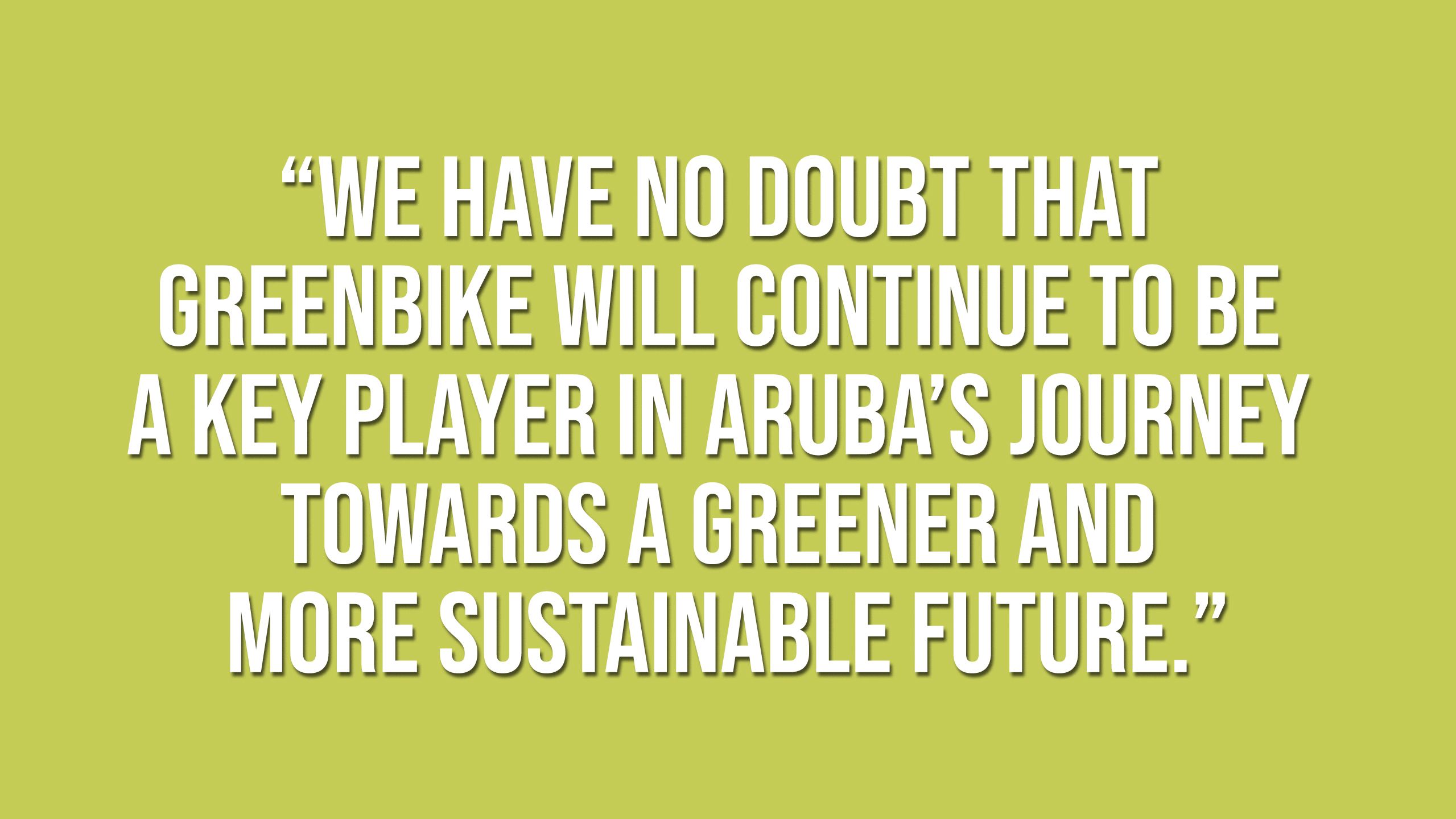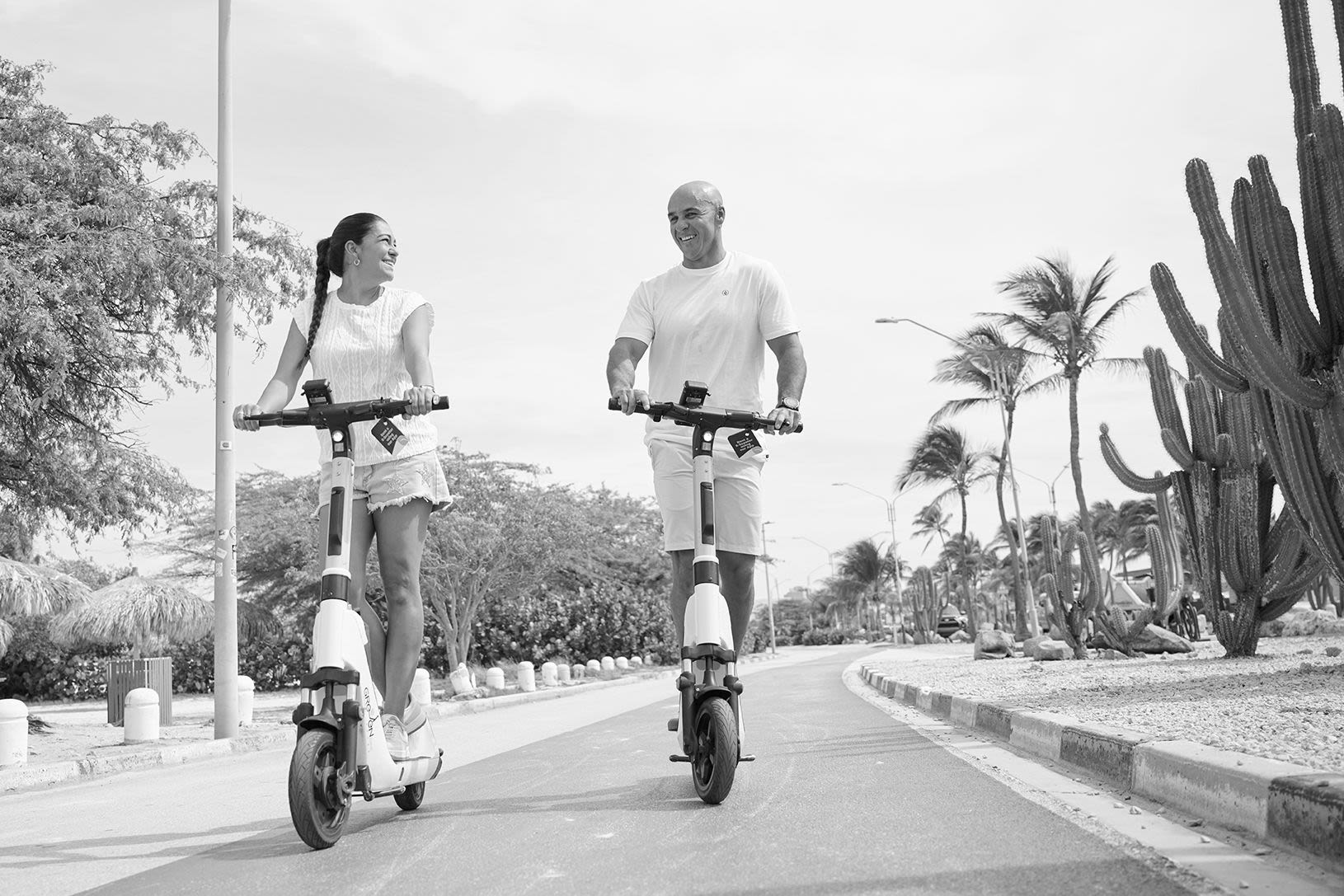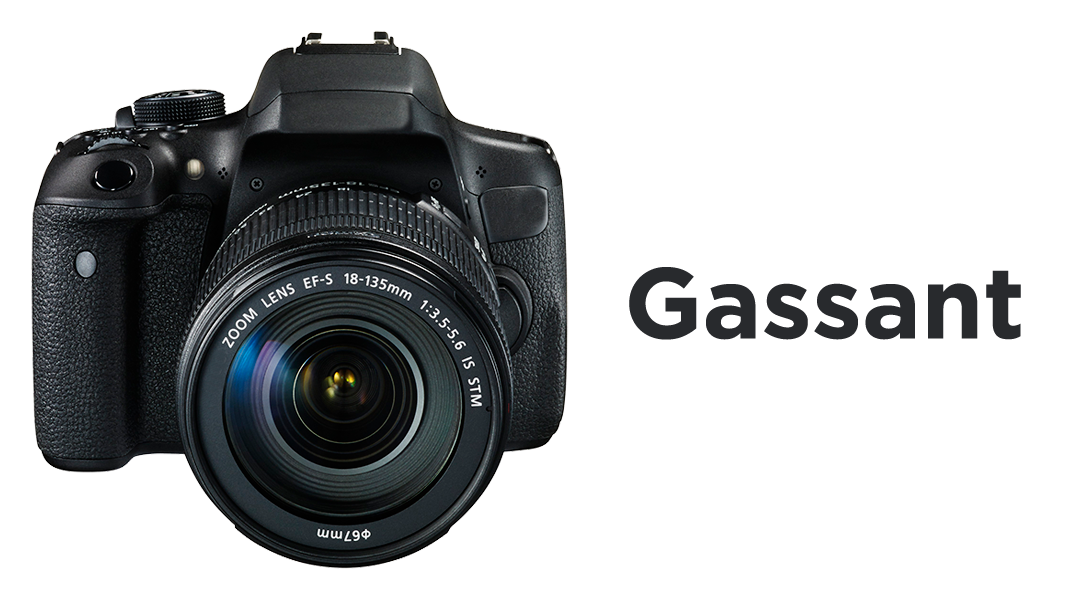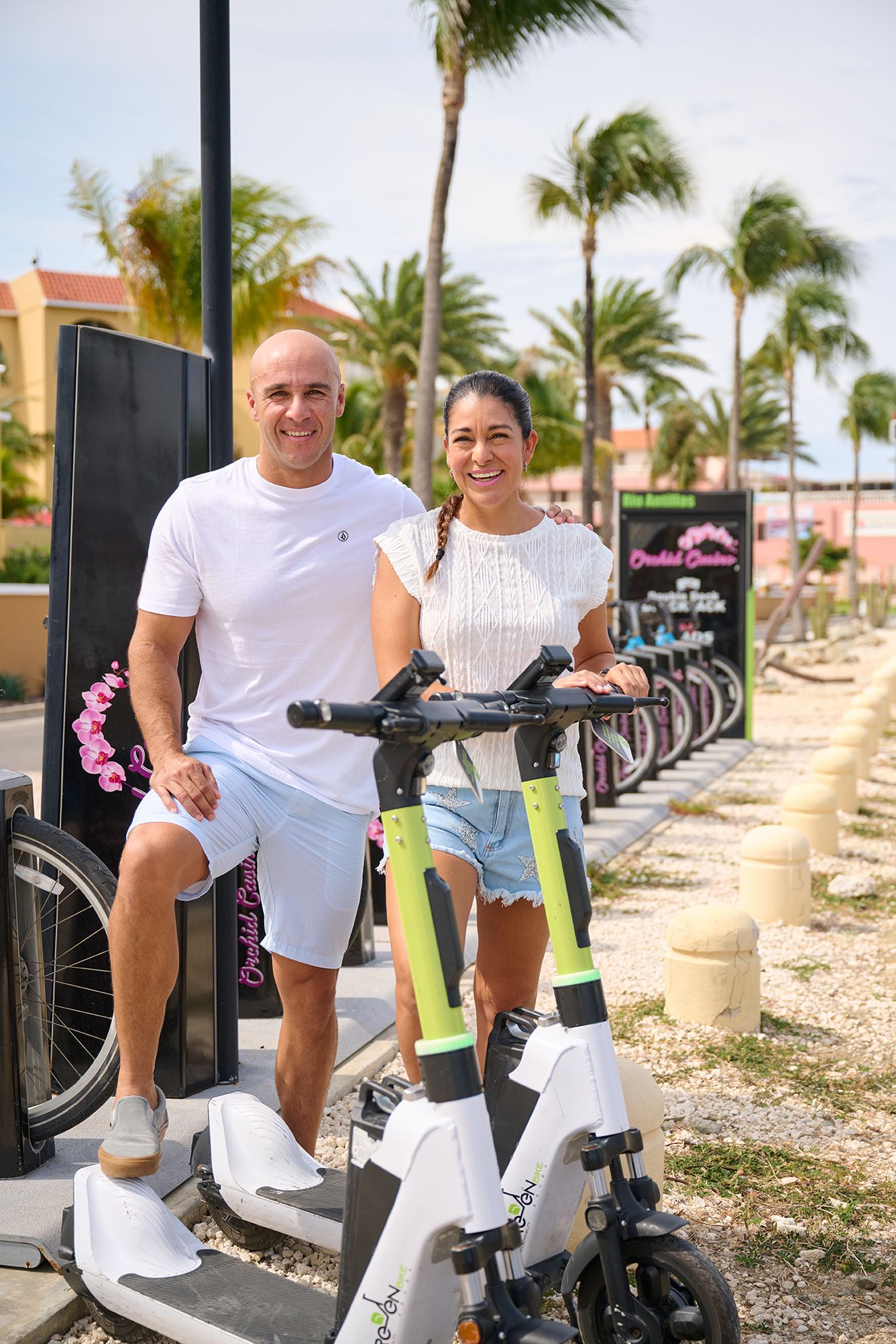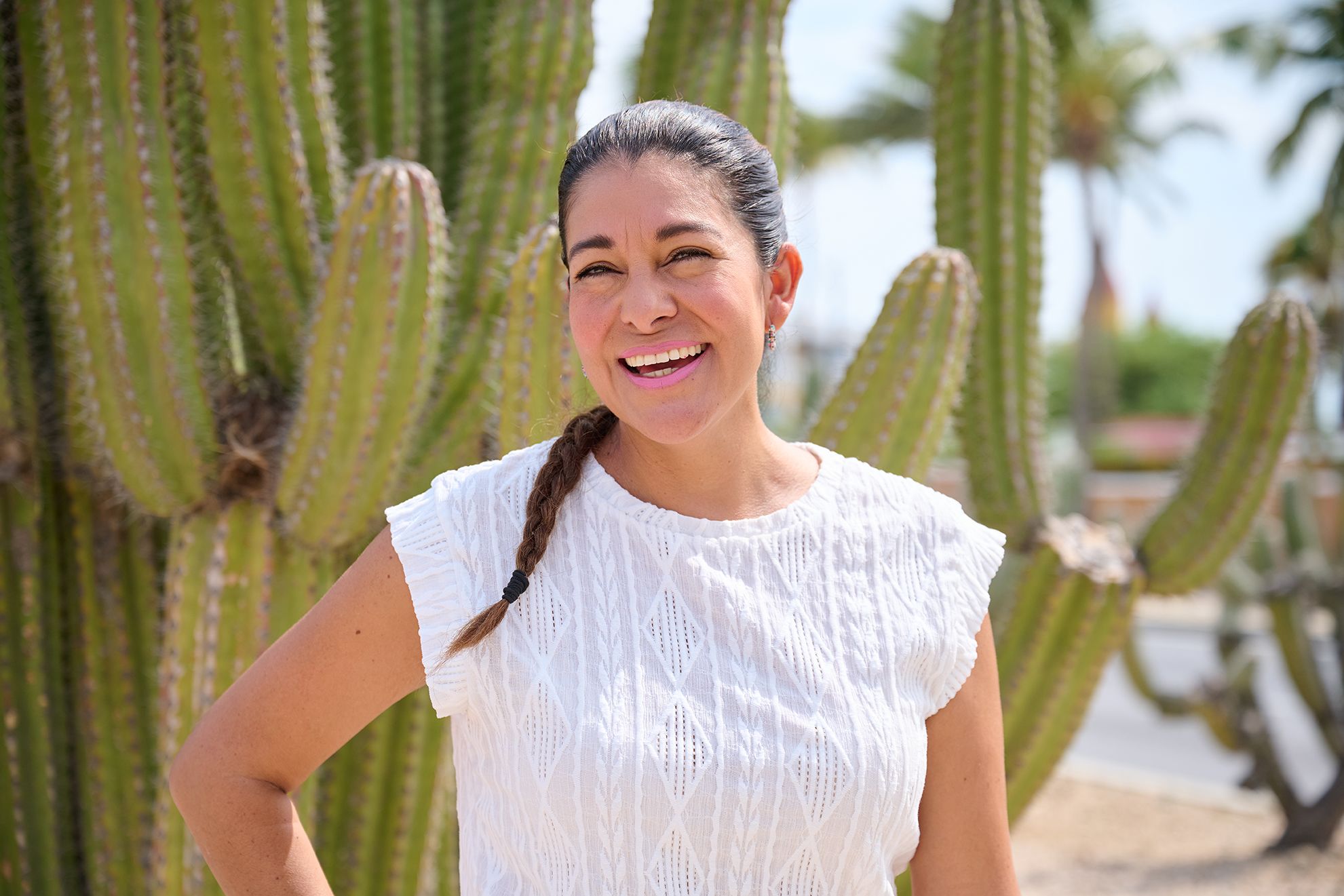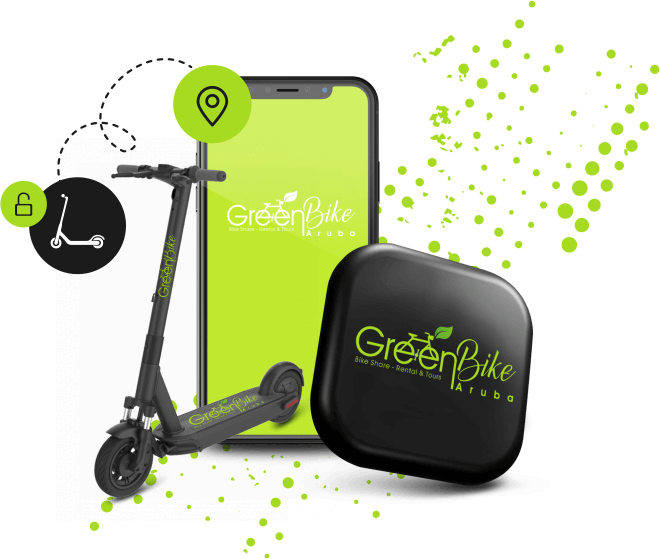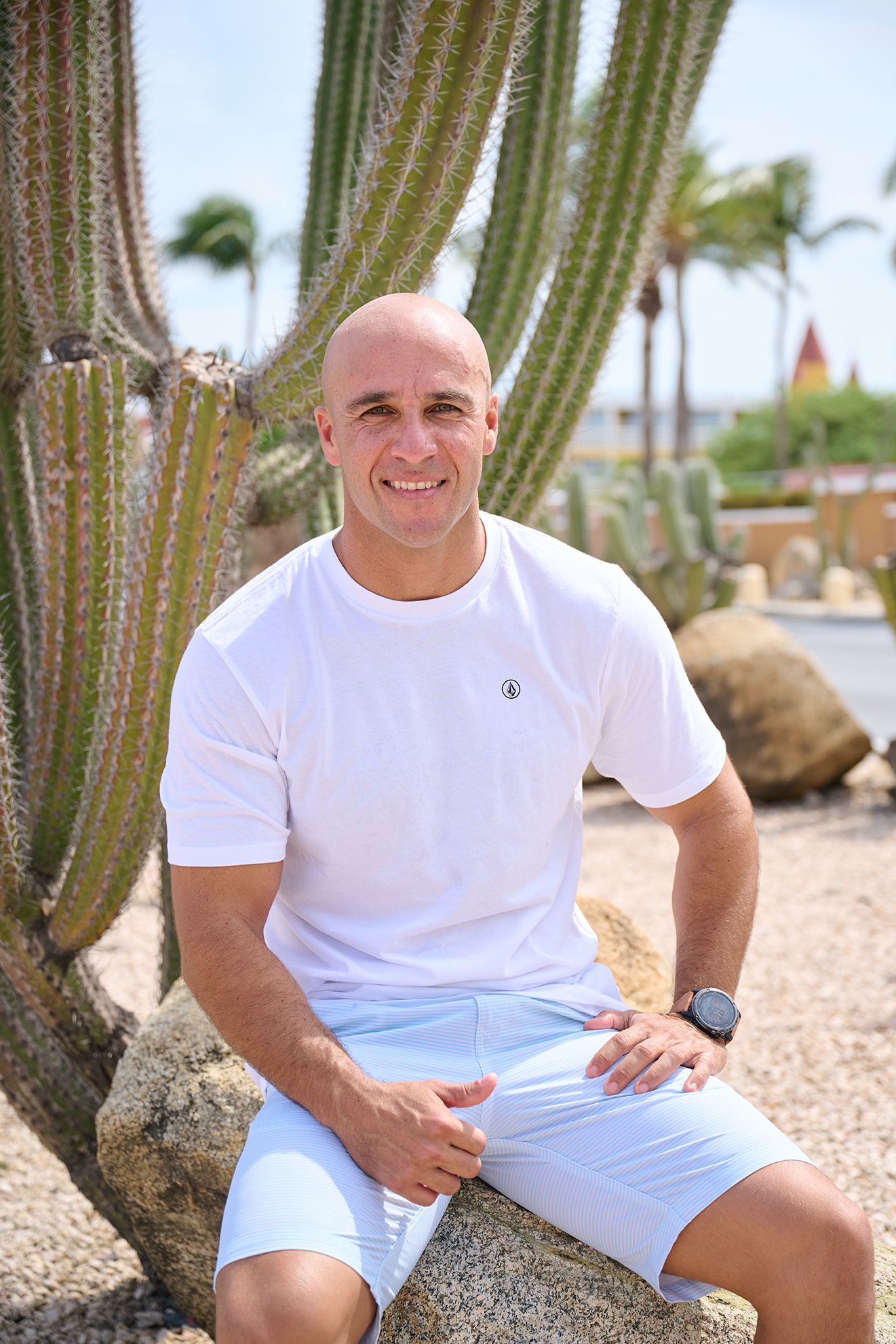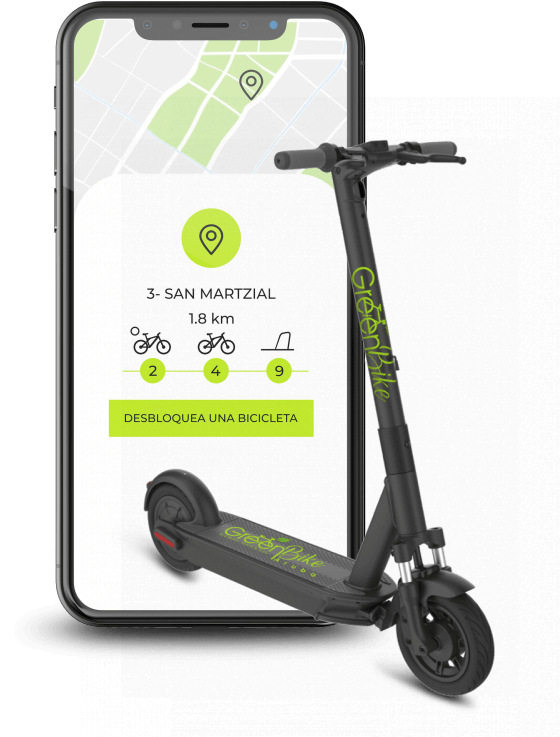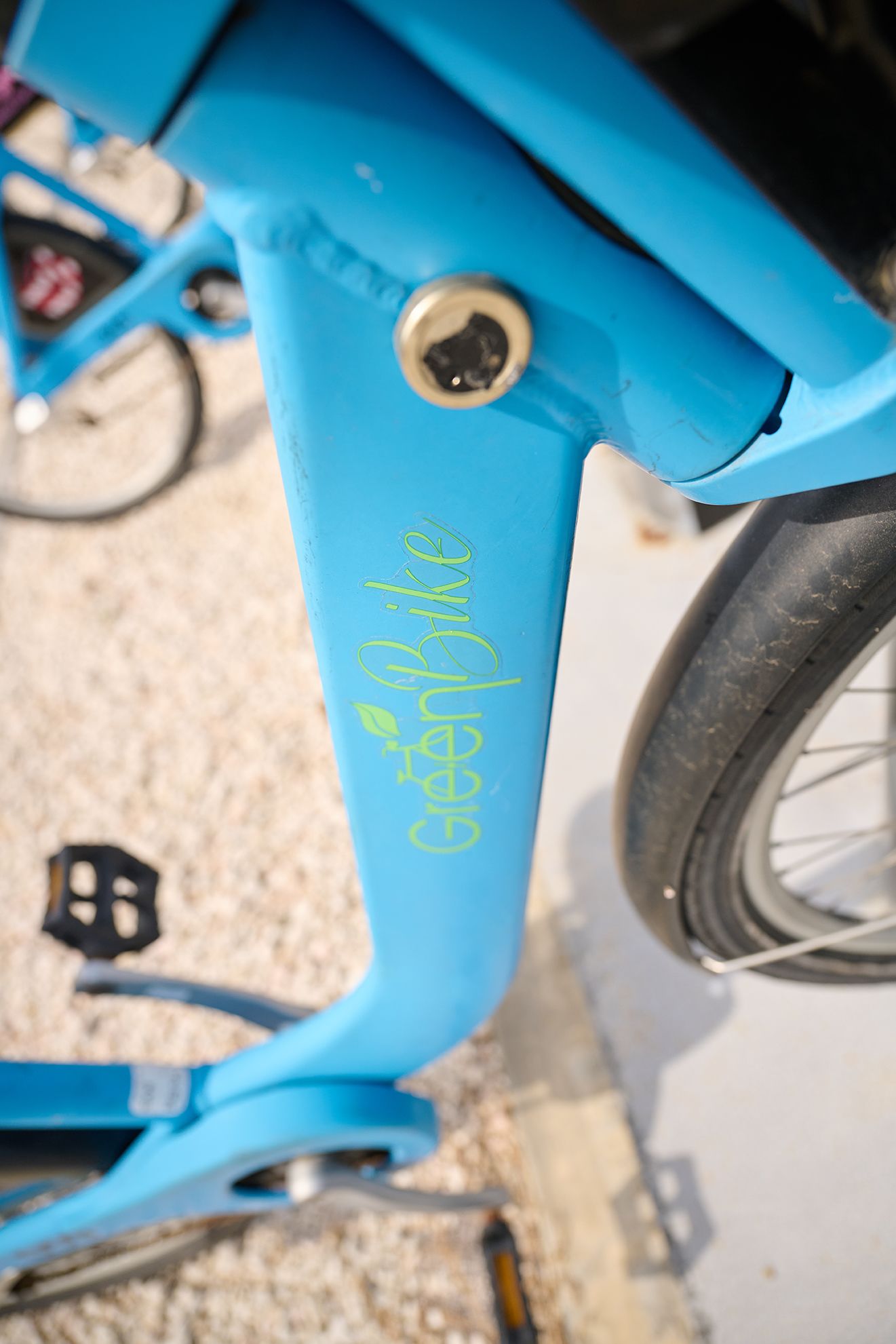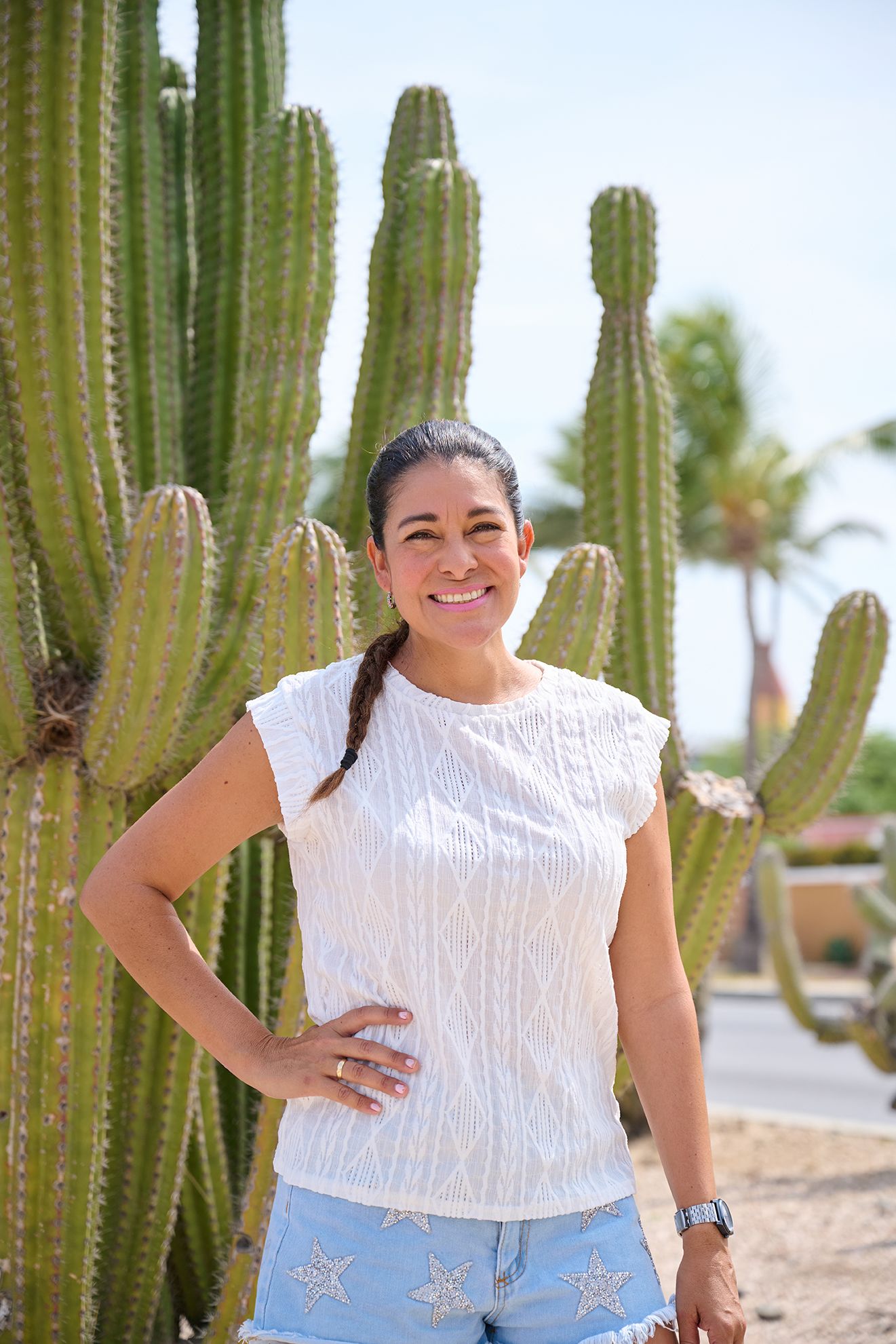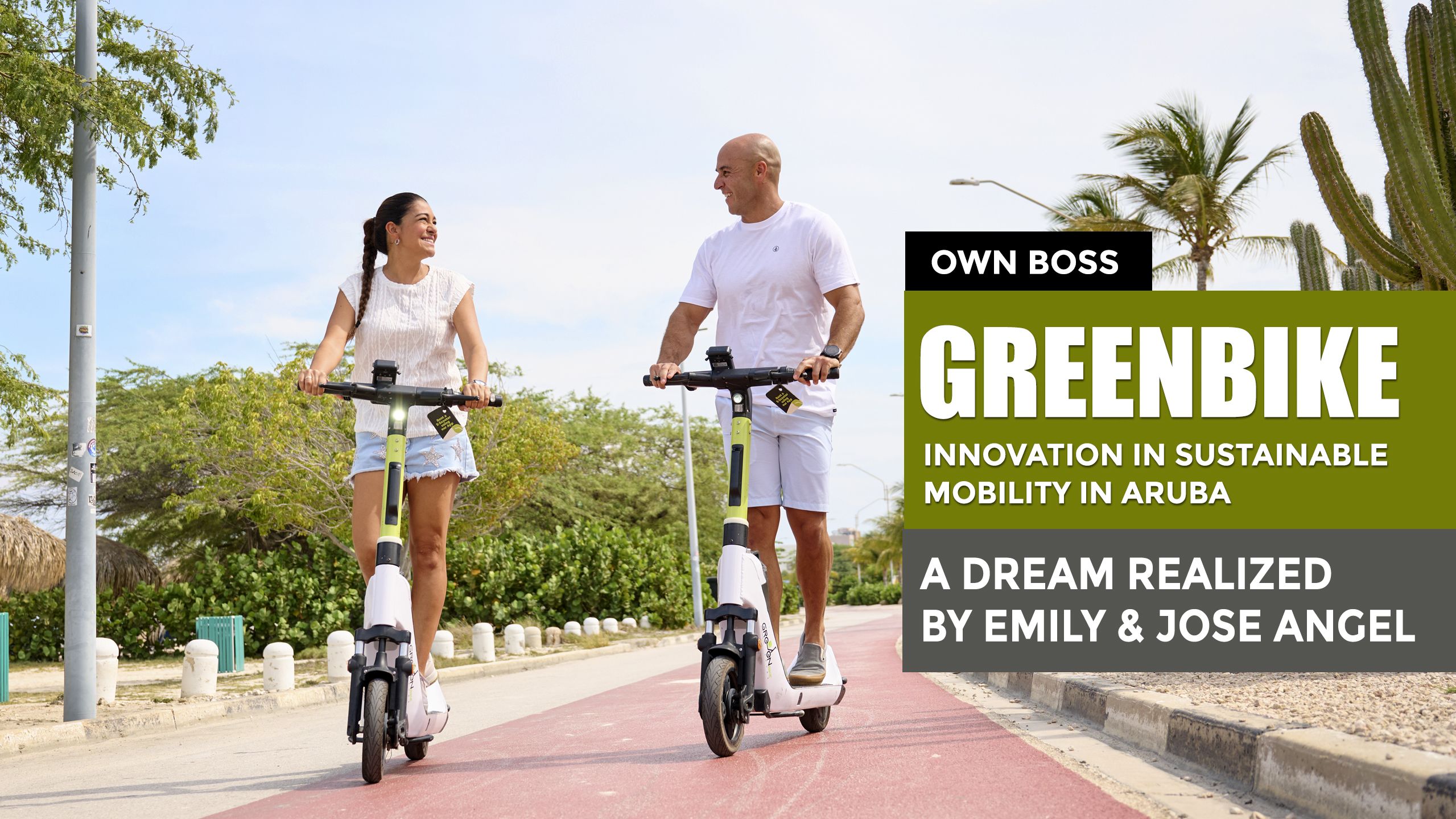
The journey of Emily and her husband, Jose Angel Perez, moving from Venezuela to Aruba, is a story of patience, innovation, and resilience. As an industrial engineer and her husband as an architect, they worked together, using their unique skills and perspectives to create a unique business for Aruba. They had a vision to create a sustainable and innovative transportation solution for both tourists and locals. What started as a dream quickly became a successful business, now known as Greenbike, the first micro-mobility company in Aruba. Today, Greenbike is synonymous with determination, patience, and a commitment to sustainability and community, hand in hand.
“Greenbike started 8 years ago, and it is a family business where, together with my husband, we are fully dedicated to this." The concept was inspired by the global trend of the bike-sharing system, a new idea at that time. But to make this a reality, it took a lot of effort; just to obtain the necessary permits took three years. But for every challenge, persistence was what finally made the project a reality.”
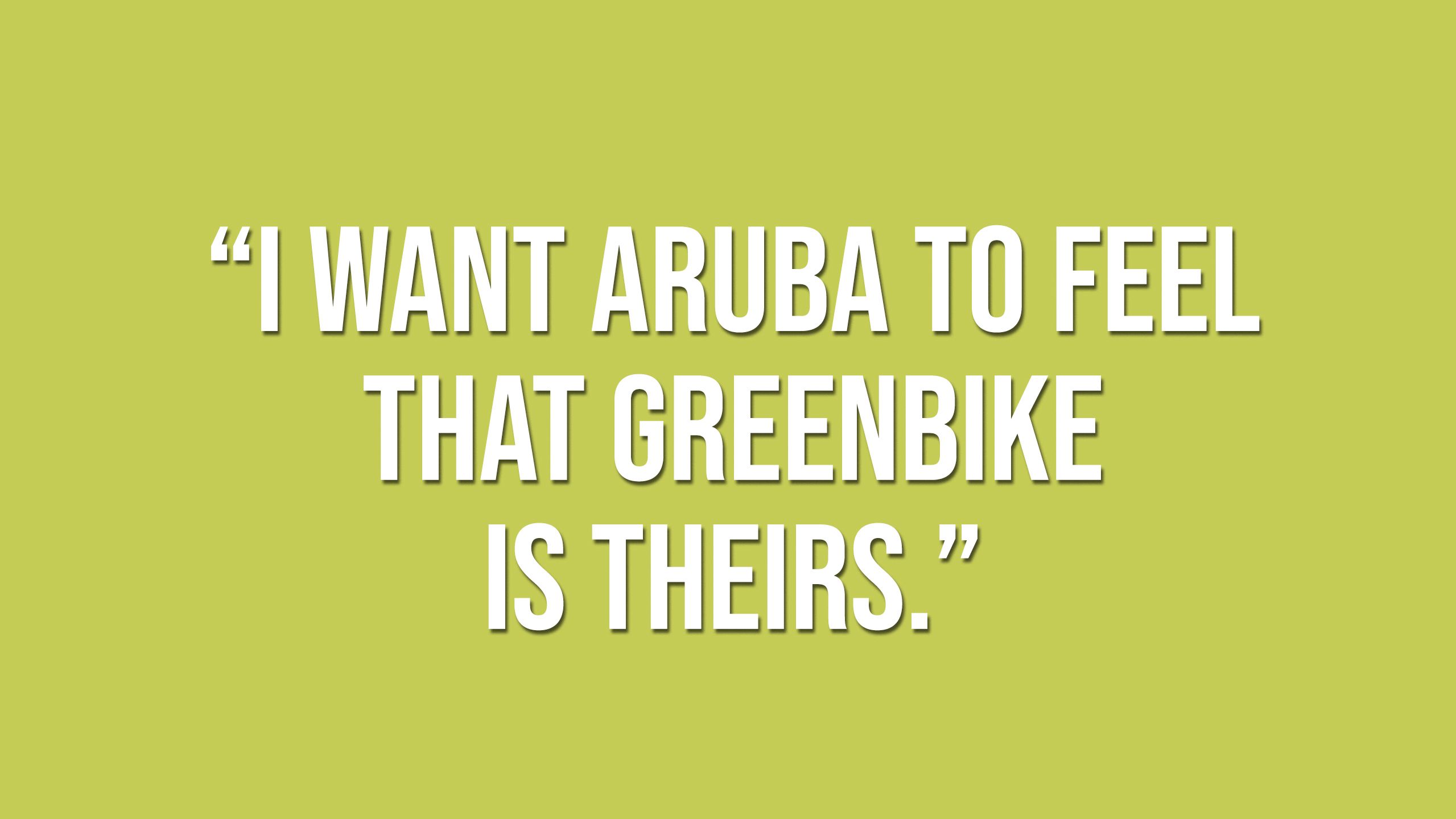

Greenbike began modestly, but it has grown significantly over the past years. The concept was created in Aruba 'from scratch,' where even the application was developed under the guidance of Emily and her husband. Initially, they introduced a bike-sharing system with strategically placed stands around the hotel district in Aruba. “We have stations at RIU Hotel, La Cabana, the cruise terminals, Marriott, in front of the Hyatt, at Palm Beach, Holiday Inn, and in front of Divi Hotels.” Emily was also in charge of seeking support from sponsors to place their advertisements at the stations around Aruba, which turned out to be a more difficult effort than she had anticipated.
“Businesses wanted to see Greenbike operational first, and it was only after that, that they saw the potential and began to give us support with advertising. I am very grateful to all the companies that have been with us from day one,” Emily says, expressing her gratitude. Although Greenbike was initially more targeted at tourists, the bikes quickly became popular among locals who started renting them on weekends for leisure with friends or family.
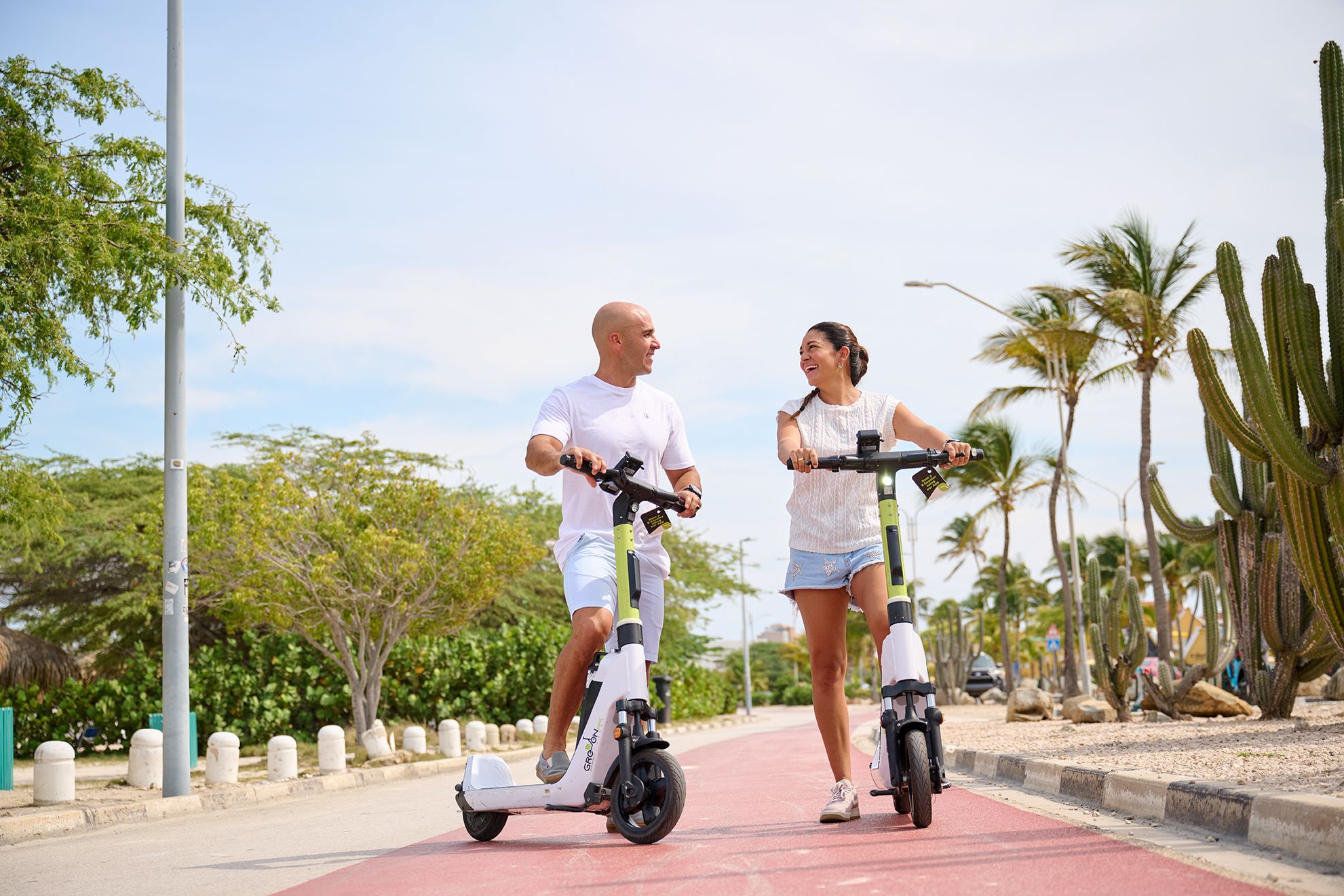
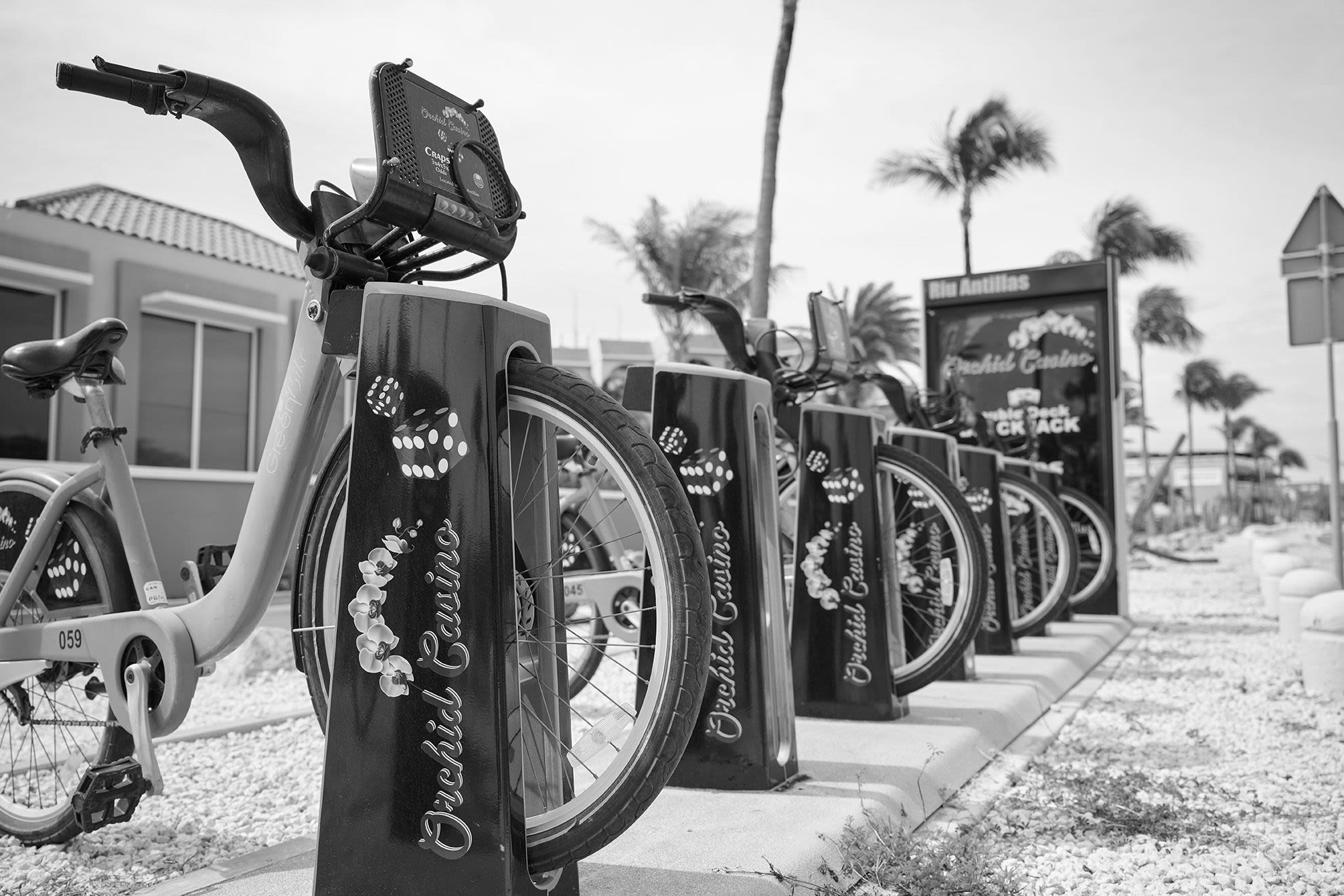
Today in 2024, besides the traditional bicycles Greenbike started with, they now have electric scooters and will soon also bring electric bicycles, catering to a wide range of customers. “You must have different products because there are different clients with different needs,” Emily explains. This diversification reflects Greenbike’s commitment to innovation and sustainability, reflecting Aruba’s reputation as a leader in ecological initiatives. “With the technology developed here in Aruba, and this is not a franchise that we bought. We have been serving Aruba and the tourists, who are also part of Aruba’s economy, for eight years, with a lot of dedication and effort.”
The introduction of electric scooters was an important decision for Greenbike. “Last year, we managed to get our first 50 electric scooters. In February, 100 of them arrived,” Emily proudly states. These scooters are not like any other scooter because they have advanced features such as a hydraulic system for a smoother ride, a phone holder for added convenience, and geo-fencing capability to help with safety. “For us, safety comes first. The geo-fencing system limits scooter use in certain areas where traffic is calmer, such as around hotels and beaches. If someone enters a restricted area, an alarm goes off, and the scooter brakes,” Emily explains. This focus on safety is a crucial factor in Greenbike’s operations, reflecting the company’s commitment to the well-being of the community.
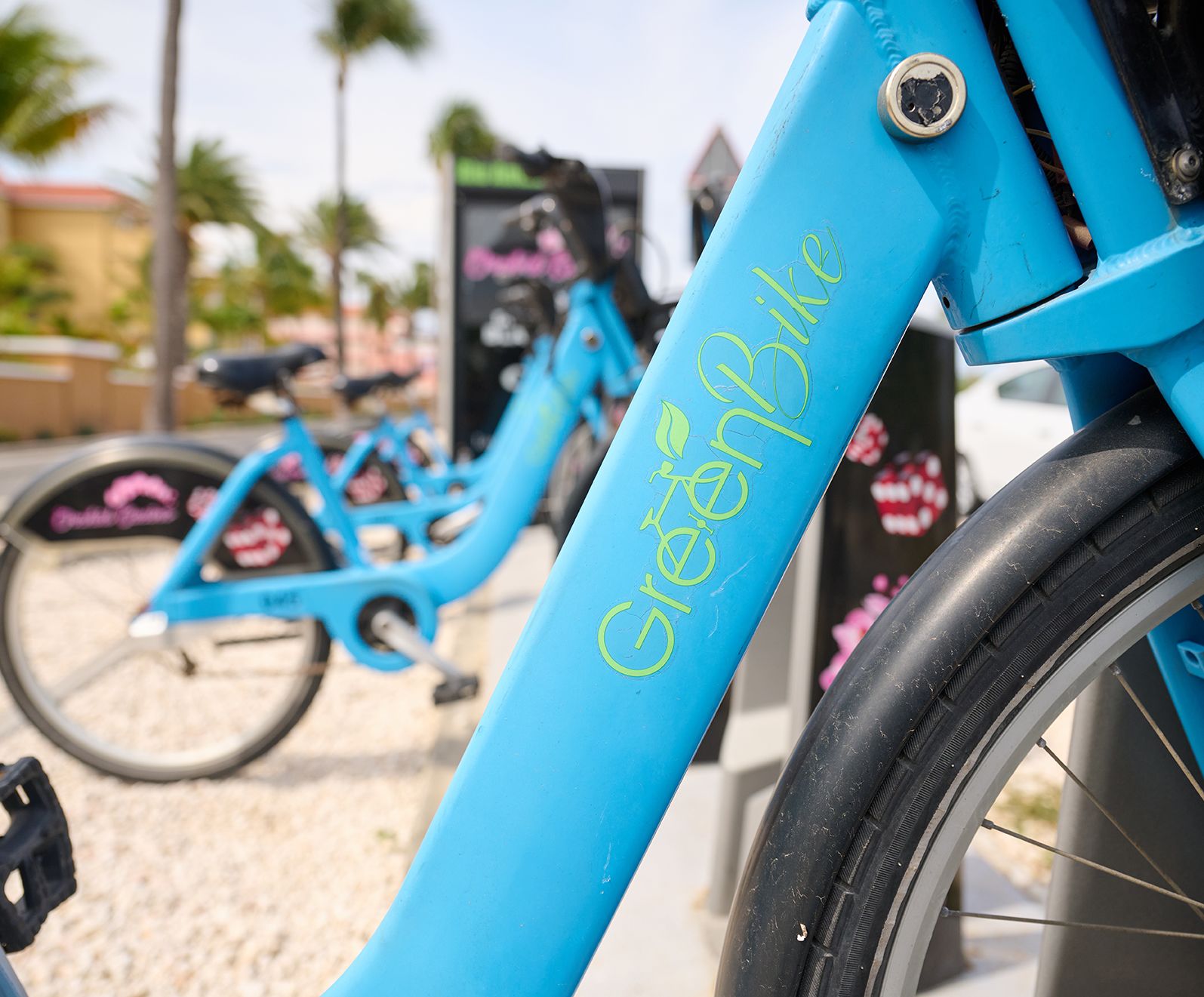
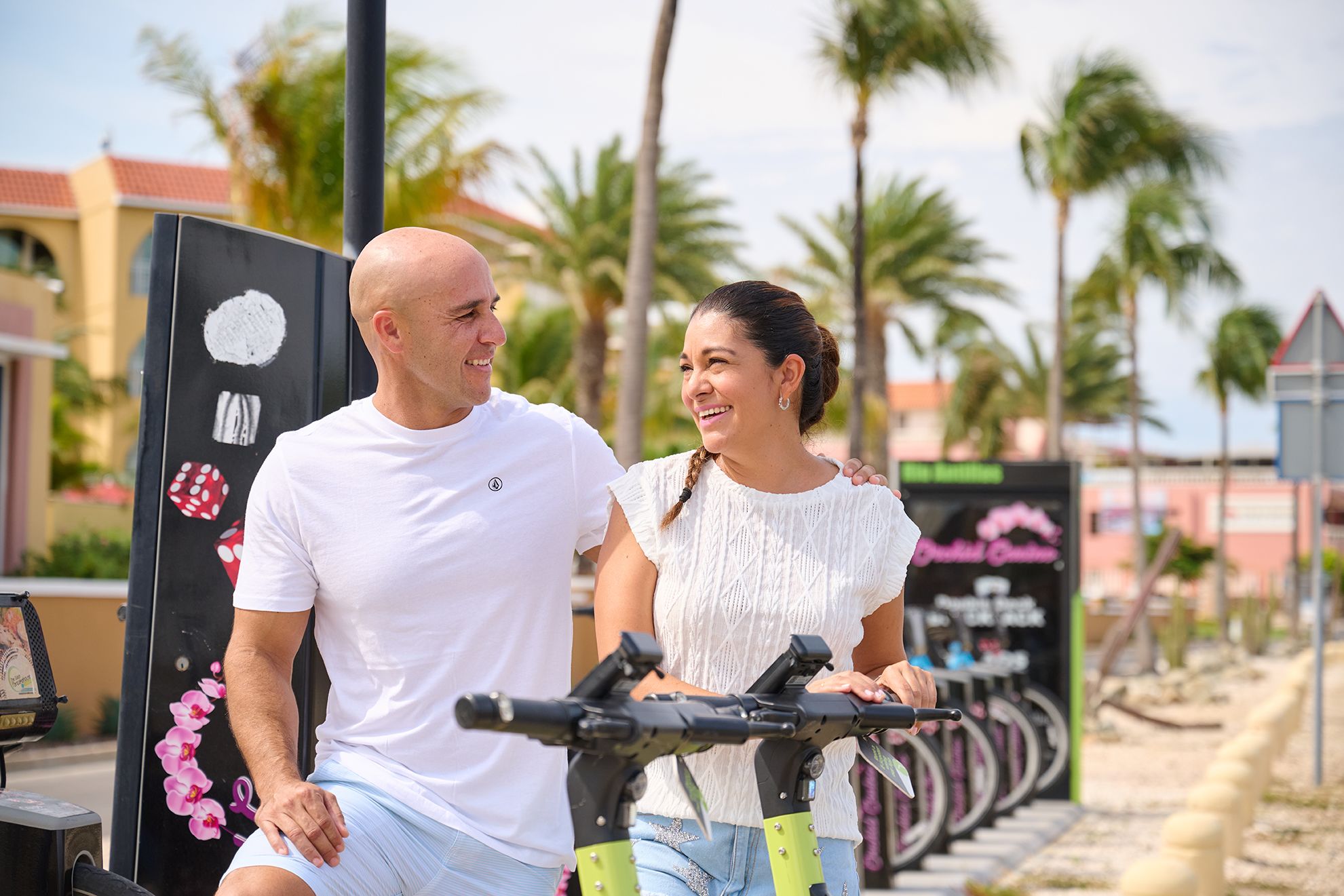
Looking to the future, Emily and her husband are exploring possibilities to expand Greenbike to other islands, but they also recognize the unique conditions that make Aruba ideal for their business. “Finding an island that meets the conditions that Aruba has is not easy. We have traveled, and we haven’t managed to find a density at a certain point.” Moreover, Emily explains that the combination of safety, infrastructure, and a welcoming environment in Aruba provides a foundation that cannot be easily replicated elsewhere.
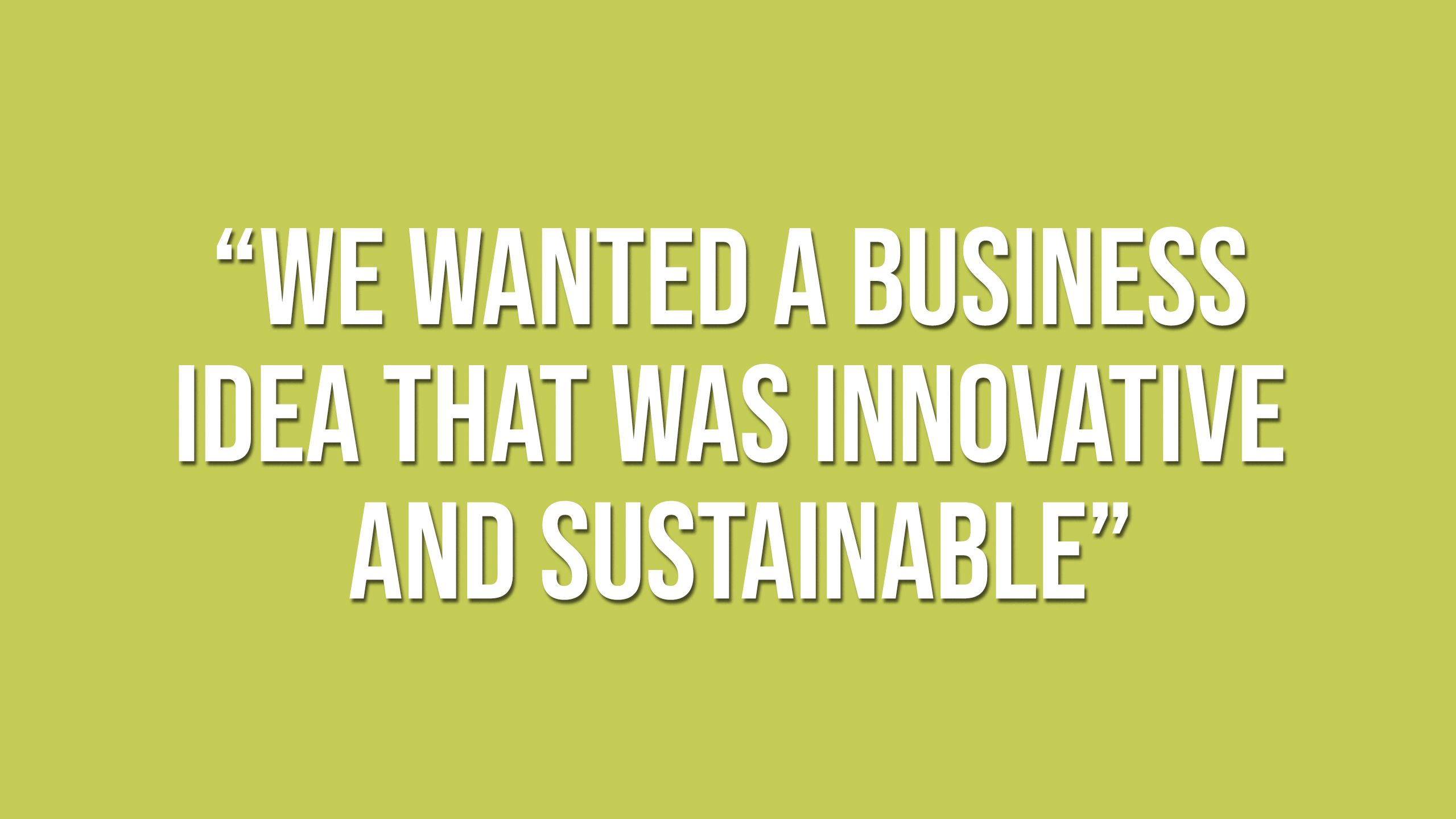
The start of Greenbike was not without challenges. From navigating the 'red tapes' to obtaining Aruba’s first innovation license, every step and achievement was a learning experience. “We wanted a business idea that was innovative and sustainable,” Emily says. This philosophy has guided Greenbike from the beginning and continues to contribute to its evolution. “Greenbike does its part in reducing CO2. We have loved this environmental impact since day one.”
What started as a dream has grown into a micro-mobility service that not only improves the travel experience in Aruba but also contributes to the island's sustainability goals.
